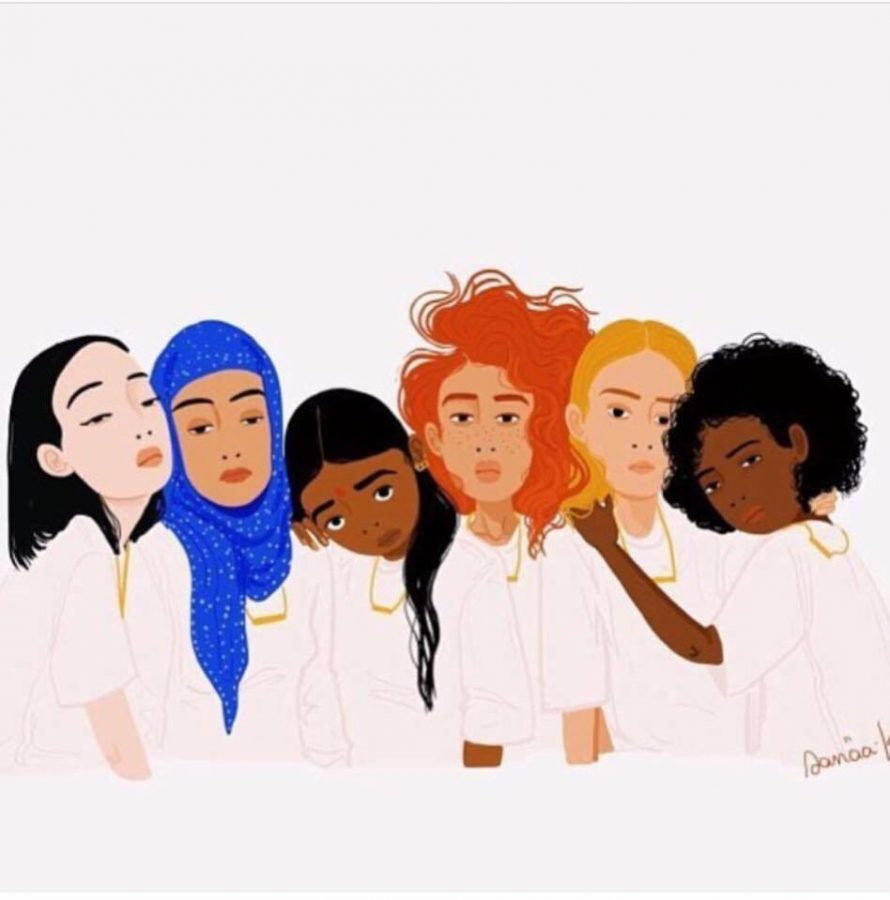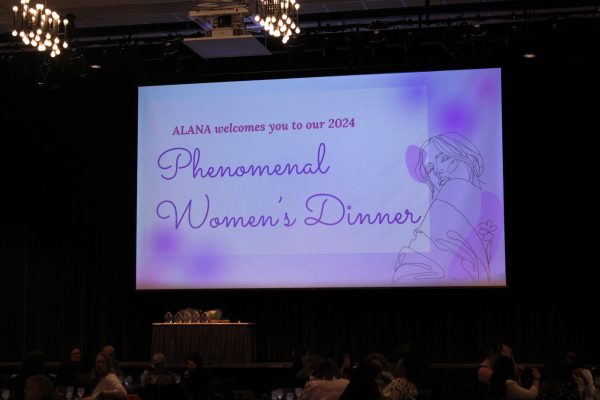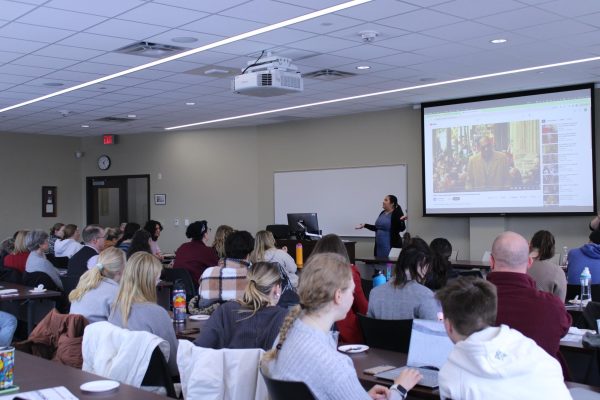Student Association votes down, then passes ALANA Resolution
March 26, 2018
On Wednesday, March 21, Student Association – with dozens of students in attendance – began its meeting with the swearing in of a new senator and a guest speaker from faculty senate. The hot topic of the night, propelling nearly two hours of discussion, was the possibility of adding a new senate seat for the Human Diversity Organization Asian Latina African Native American Women (ALANA).
Student senate is comprised of 35 seats, 17 of which must be filled by their respective colleges. The Student Senate Bylaws state that, “Representation for each college will be determined by taking the percentage of the number of students in each college or school represents in the total school population.”
The remaining seats are divvied up for 2 graduate students, 2 first-year students, 5 various student life positions (including Residence Hall Association Council, Fraternity & Sorority Life Senator, Athletics, Returning Adult Student Organization), and 9 positions for Human Diversity Organizations.
Currently, Students Advocating for Potential Ability (SAPA) holds one of the Human Diversity Organization seats. However, because SAPA was unable to fill its seat, as the bylaws state, the seat was given to another Human Diversity Organization for the current term – ALANA.
The conversation began with supportive responses from students who had filled the room as well as various senators, but the discussion ensued about how necessary the addition would be.
The argument against ALANA was centered on the implication of adding another seat for a Human Diversity Organization – which would make 10 Human Diversity Organization senate seats out of the total 35.
It was this 10 to 35 representation that some senators called “unproportional,” explaining that this is not representative of the UWL campus demographic. It was also stated that UW-La Crosse is the only UW school that offers Human Diversity Organization seats in its student senate.
Briefly, there was a motion by Senator Jiles to consolidate the Asian Student Organization (ASO) and Hmong Organization Promoting Education (HOPE) senator positions.
There was discussion thereafter about whether ASO and HOPE have too much overlap to have their own, individual senate positions as well as whether it would be appropriate for representation from one organization to come at the cost of representation from another and how this notion of ranking organizations can lead to issues. The resolution, ultimately, did not pass.
Arguments for ALANA consisted of the lack of proportionality of voices being heard on campus, ensuring a seat for the voice of women, specifically, from minority backgrounds, and the role of Dorothy Smith’s Standpoint Theory.
While senators agreed that there is not a 10 out of 35 ratio of minority enrollment, senators who were for ALANA argued that this is precisely why the seat is of importance. Senator Kallis stated that “their [women of color] voice isn’t going to be heard if we do things by proportionality . . . because they are not the majority, their voice is not going to be heard proportionately.”
It was mentioned that of the Human Diversity Organization senate seats, none of them ensure that women of color will be voted in. This is important as it plays into Dorothy Smith’s Standpoint Theory. This sociological theory hinges on the concept that each individual has a unique perspective dependent on that individual’s race, class, and gender, and that white males offer a limited viewpoint of the whole picture.
This creates a need for voices of varying races, classes, and genders as well as voices which contribute an intersectionality of these aspects, because without these voices, there is not a complete picture being considered.
Senator Quinones explained, “this is not going to take away anyone’s ability to vote, it’s only going to give women of color the ability to do so.”
Senator Hodges echoed, “If you have unearned privilege, you are going to feel like you’re giving away power when really you’re just giving a voice to others . . . You’re going to feel threatened, it’s going to feel like work, you’re going to feel like something is being taken away from you.”
The resolution failed in a roll call vote of 16-10, not making the necessary 2/3 vote which is required of it. Of those that voted against the resolution, none of them hold positions through Human Diversity Organizations senate seats.
The senate later invoked Robert’s Rules of Order Motion to Reconsider which states that a senator may motion to reconsider a vote within the same meeting provided that the senator who is motioning voted for the prevailing side (either voted yes on a motion that passed or no on a motion that failed). In the revote, the resolution to give ALANA a permanent seat in the senate passed.
The Racquet reached out to the Senate for further comment, but did not receive a response.

















